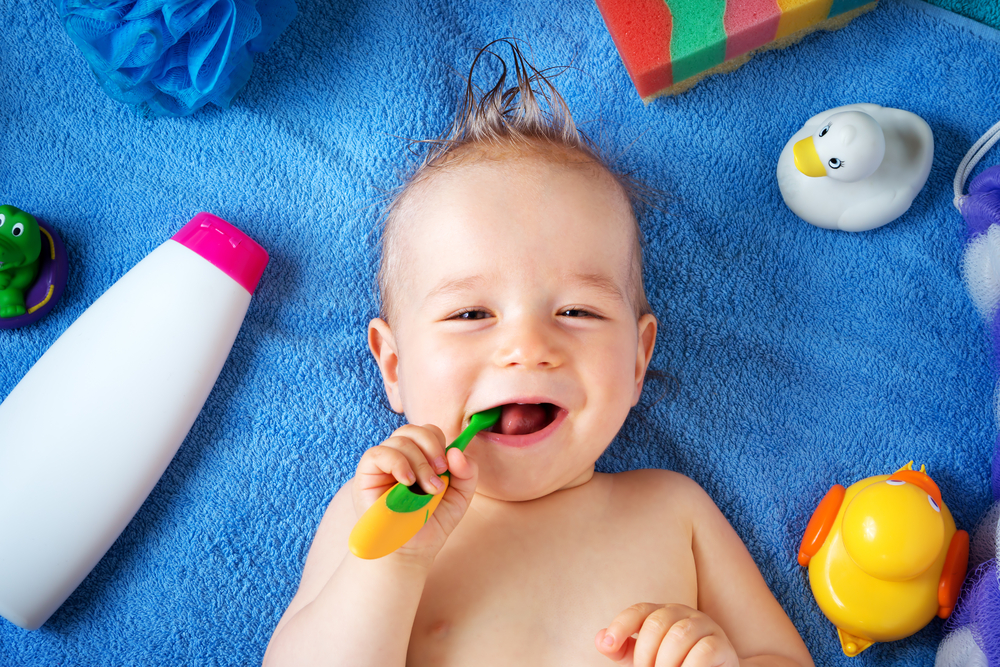
When to Start Brushing Your Baby’s Teeth: A Guide for Parents
Keeping up with your baby’s oral hygiene is important for their oral development and overall health. Even if your baby doesn’t have teeth, there are certain steps you can take to keep their mouth healthy. Although you may not need a tooth brush just yet, it’s important to know what you can do in the meantime.
Here is a guide for parents on when to start brushing your baby’s teeth.
Prior To The First Tooth
On average, the first 2 teeth come at around 5-7 months and are usually the 2 bottom front teeth. During the first few months, you can run a clean, damp washcloth over your baby’s gums to clean away any harmful bacteria. Be sure to gently do so to prevent irritating the gums.
Simply running a washcloth over your baby’s gums helps them become used to oral hygiene routines. They may not be as fussed when they are exposed to a toothbrush.
When The First Tooth Appears
When your baby gets their first tooth, it’s an exciting day. But, this means that you have to adjust your oral hygiene routine. Put the washcloth away and get an infant toothbrush and fluoride-free toothpaste.
Just like adults, baby’s need to have their teeth brushed on a daily basis. You can coordinate it with your brushing routine so you don’t forget. It’s important to know that, also just like adults, infants can get cavities too. Try to brush your baby’s teeth at least twice a day. Once there are 2 teeth side by side, you can begin gently flossing their teeth.
Extra Tips For Baby Oral Hygiene
Now that you have a general guideline for your baby’s oral hygiene, here are a few extra tips that can help keep their mouth healthy.
Avoid Using A Bottle During Bedtime
Although your baby may need a nighttime feed, avoid using a bottle during bedtime. Once they baby has had their final feeding ensure that you brush their teeth before they go to sleep The sugars in milk or juice can eat away at tooth enamel and should not remain on the teeth all night long.
Teach Good Habits
As your child gets older, be sure to emphasize the importance of good oral hygiene. Get them into a routine and make brushing and flossing your teeth a fun activity.
Find A Good Dentist
Children should visit the dentist every 6 months. Especially as their teeth are growing and maturing. Find yourself a good dentist while your child is young. This way, your dentist can monitor their oral hygiene and make recommendations as their teeth develop.
If you are in need of a kids dentist, contact Kids Dental Group today!
